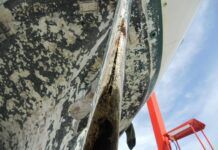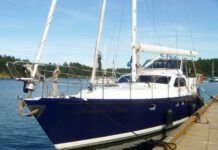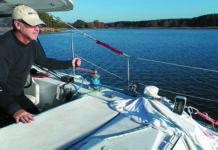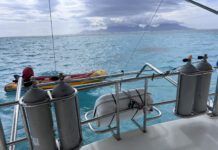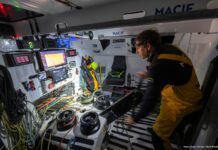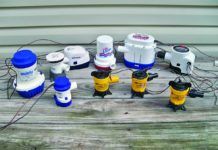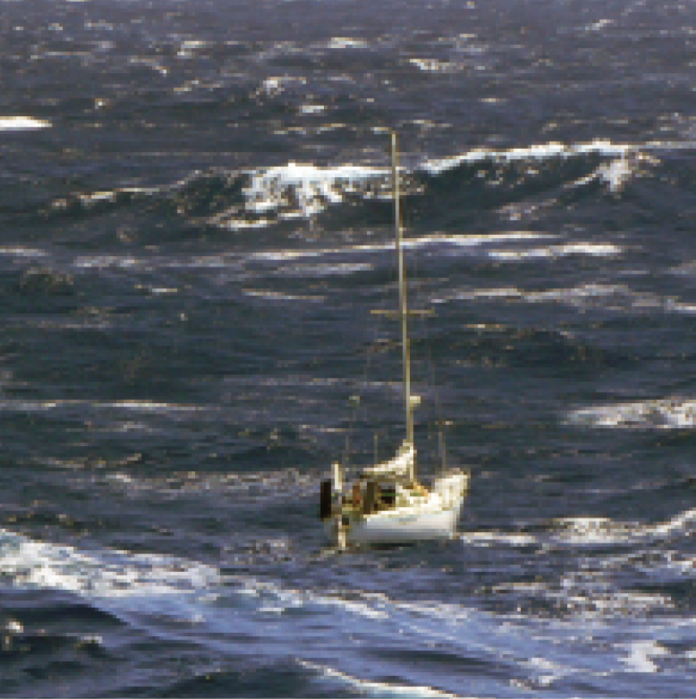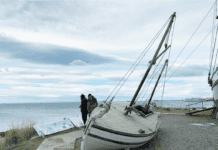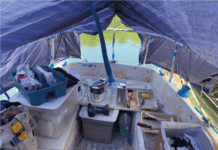Whether it is simply the curse of age or my diminished capacity for self-delusion, my efforts at creating a small boat fit for single-handed passage-making seem ever more futile. I’m beginning to think that the rugged individualist’s quest for true self-sufficiency is unattainable—and that this is a good thing. As Joseph Conrad, who frequently spoke of the “brotherhood of the sea” during his rumination on a life under sail, pointed out: It’s perfectly human to need each other now and then.
You’d think this reckoning would come at a moment of peril, when the wind or sea would again remind me of my folly—that proudly appointing myself master and commander of my own small ship is at best an empty gesture, or at worst, a sure path to the bottom of the sea.
That’s how the textbook sea story goes. The hubris-stricken wannabe
Odysseus, overcome by natural forces, calls out for divine intervention, or in the modern version, presses the distress button on their handy EPIRB. Hard and fast, at the worst possible time, comes the epiphany: Some ambitions are better pursued in the company of others, if only so we can survive.
No grave danger prompted my own reflection on the ideal of the self-sufficient sailor. It occurred as I was working on my 30-foot Yankee sloop, Opal. I was trying to arrange the vice grips on a ¼-inch nut below deck so that the nut wouldn’t turn when I went back on deck to loosen a screw. The screw secured a cleat that I hoped to replace.
The job would have taken a few minutes if I had a helper, or friend below deck with a socket wrench, but no helpers were at hand, and lately my calls to friends have been going straight to voice mail. (I’m beginning to believe it is no coincidence that this pattern began shortly after I started sanding Opal’s deck in December.)
So there I was, an old hound chasing its tail, circling above and below deck, making wrench adjustments below, turning the screwdriver above, hearing a clunk as the vice-grip let loose and vanished into the darkness of the bilge, and repeating the process . . . again and again.
That evening, with the cleat finally removed, I began to make a list of things requiring two or more people that a sailor must do long before they ever set sail. It was long, as you can imagine. And it did not even include all the activities that would go twice as fast with the help of another person – simple ones, like stowing supplies below deck.
No doubt, some of us need to challenge ourselves with self-imposed hunger games. But if the aim is to develop personal strength, resilience, or endurance, could we not reach a little higher? In many ways, the test of crossing an ocean alone is less formidable than finding a willing companion to share in the adventure. And the collaborative skills we’ll develop in the process of building a partnership will surely serve us better through the years.
As many of us have suddenly found, we need other people more than we ever imagined. A vice grip may be fine for holding a nut when no friends are around, but it makes worthless companion on a long night watch.








